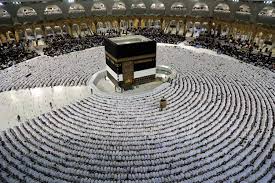In a decisive move to enhance the overall management and experience of the annual pilgrimage, the Royal Commission for Makkah City and Holy Sites is leading Saudi Arabia’s renewed push to streamline Hajj operations, ensuring improved efficiency, safety, and service delivery for millions of pilgrims expected in 2025.
The Commission, in collaboration with other government and private sector stakeholders, has ramped up efforts to modernize infrastructure, optimize logistics, and integrate technology into the coordination of services during Hajj. This includes strategic oversight of crowd control, transportation, healthcare access, accommodation, and emergency response systems across Makkah, Mina, Arafah, and Muzdalifah.
Officials revealed that the commission has implemented smart monitoring systems, digitized permit processes, and reinforced its coordination with the Ministry of Hajj and Umrah to ensure that pilgrims’ movements are better regulated and that services are accessible, inclusive, and efficient.
The Chairman of the Royal Commission, Engineer Saleh Al-Rasheed, stated that the ongoing initiatives are not only focused on current demands but also aligned with Saudi Vision 2030, which aims to transform the kingdom into a global hub for Islamic tourism while significantly improving the quality of the Hajj experience.
This year, more than 2 million pilgrims are expected to participate in Hajj, with a large contingent from Nigeria. Nigerian authorities, through the National Hajj Commission of Nigeria (NAHCON), have expressed satisfaction with the preparations so far, noting improvements in camp inspections, feeding logistics, and health service delivery.
The Royal Commission’s leadership underscores the Kingdom’s commitment to maintaining the sanctity of the pilgrimage while embracing innovation to meet the needs of an increasingly diverse and global pilgrim population.
